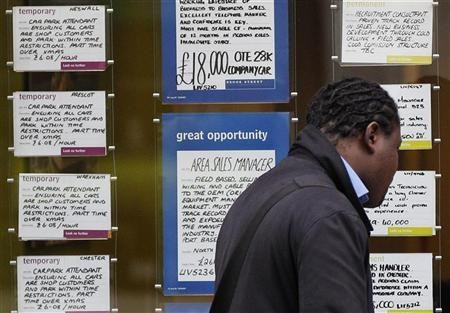CBI: UK Businesses See Employment Drive as Economy Exits Recession

A new Employment Trends Survey has revealed that over a third of British private businesses are expecting to add staff to their payroll over the next 12 months.
According to the survey by trade body Confederation of British Industry (CBI) and recruitment specialists Harvey Nash, 35 percent of businesses expect their workforce to be larger by this time next year with only 15 percent predicting they will be smaller.
The results show that the science, high-tech and IT industries will drive employment growth over the coming year. In fact 48 percent of businesses in these sectors expect their workforce to be larger in 12 months' time, while 13 percent predict they will employ fewer staff.
The survey, based on a sample of 300 firms which together employ over 1.4 million people, brought an enthusiastic response from CBI chief policy director Katja Hall, who said:
"The performance of our flexible labour market in generating jobs in a sluggish economy is a mini-miracle. Businesses look set to continue with the positive but cautious approach to hiring that we've seen over the past couple of years, and this is echoed in expected pay restraint designed to protect employment."
However Hall added that tackling unemployment "requires renewed focus from the Government and employers to ensure that more of our young people are positioned to get the jobs that the economy is creating - which are mainly skilled.
"While the jobs figures tell a promising story, too many young people from disadvantaged backgrounds are not getting jobs because - as the survey shows - job creation at a skilled level requires skills and attitudes which we do not help them to develop.
"The challenge for the Government and businesses is to ensure that barriers to employment can be overcome. Progress will require action on education and training, from early years right up to development in the workplace. While businesses are already active in this area, providing work experience and partnering with local schools, there is more to be done if we are to tackle the gap in aspiration and opportunities facing some young people."
Strong growth
Only last week, the Office for National Statistics (ONS) revealed that Britain exited the recession with the strongest quarterly GDP growth in five years.
The ONS said the UK economy grew by a full 1 percent in the three months ending in September, the strongest reading since the third quarter of 2007 and a sharp turnaround from the 0.4 percent contraction measured in the previous three-month period, which marked the deepest double-dip recession in a generation.
In mid-October, the ONS also revealed that the UK's unemployment rate fell again in the three months ending in August and the number of Britons claiming jobless benefits declined last month as the nation's labour market continued to confound experts and contradict the overall weakness of the economy and the lingering recession.
The number of Britons in work rose to a record high 29.59 million after an increase of 212,000 new jobs. The official unemployment rate fell to 7.9 percent - the lowest in more than a year - after a surprise decline of 4,000 in the number of people in Britain seeking jobless benefits for the month of September.
© Copyright IBTimes 2024. All rights reserved.







